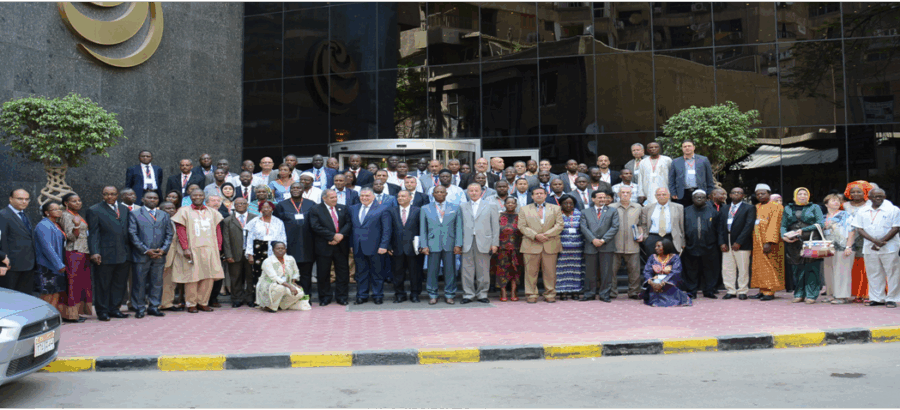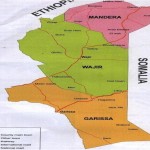Background:
Pesticides are harmful to bee health, productivity, reproduction and its environment; and their registration is a process whereby the responsible national government or regional authority are expected to first approve their sale and use following an evaluation of comprehensive scientific data demonstrating that the product is effective for its intended purposes and does not pose an unacceptable risk to human or animal health or non-targeted organisms and to the environment.
Pesticides registration is an important step in management of pesticides as it enables authorities primarily to determine which products are permitted to be used and for what purposes, and also to exercise control over quality, use levels, claims, labeling, packaging and advertising of pesticides, thus ensuring that the interests of end-users, consumers, as well as the environment are well protected.
Governments should, therefore, be expected to introduce and/or strengthen necessary legislation for the regulation of pesticides. This should include the establishment of a registration procedure and the principle that the sale and use of pesticides that have not been registered are prohibited. Furthermore, governments should make provision for effective monitoring and enforcement of pesticides regulations, including the establishment of licensing and inspection schemes for both the importers and retailers.
In the context of boosting intra-Africa trade and realizing the transformational potential of increased trade among African countries, to create a free market for goods and services, there is an urgent need to harmonize the processes used to regulate pest control products. The purpose of that harmonization is to develop a more efficient method of bringing safe and effective pesticides to the consumer, with the added benefit of promoting sound regulatory policies continent-wide.
Harmonization requires a complete understanding of the methods and practices used to regulate pesticides in various member states and the inter-african phytosanitary council (IAPSC), in its role as a continental plant protection organization, has initiated the harmonization process by bringing member states to work toward converging their various approaches with an ultimate goal to facilitate trade and ensure safety to human and environment.
The Inter-African phytosanitary council of the African Union has facilitated harmonization of pesticides registration for Sahelian and for Central African countries. Since 2009, AU-IAPSC is engaged in the replication of those experiences at continental level. To that end, steps have already been made, include the following a survey on the legal and institutional frameworks for plant protection and the use of chemicals in selected pilot countries of the continent, a consultation meeting of pilot member states held in February 2009 at the headquarters of the AU Commission in Addis Ababa, Ethiopia, a second consultation meeting held in October 2011 in Cairo, Egypt where a Drafting committee of the harmonization document was put in place.
These was followed with a meeting of the drafting committee in June 2012 in Alexandria, Egypt, which resulted in the production of the first draft of the harmonization document, an experts meeting to review the draft document held in July 2012 in Addis Ababa, Ethiopia and a finalization of the harmonization document on 1-3 October 2013 in Tunis, Tunisia. The final phase before the implementation of harmonization is to submit the document to a continental validation.
Objective of STSD PSC Meeting:
The meeting’s objectives were to validate the proposed framework for harmonization of pesticides regulations in Africa and to facilitate trade and ensure safety to human health, bee health, to save the non targeted organisms and the environment.
Summary of proceedings / Outcome
The meeting was a result of a series of discussions held between AU-IAPSC and AU-IBAR that concluded that the validation of the harmonization document would be an important step towards the adoption of harmonized regulations for pesticide in Africa. It was attended by the RECs such as; IGAD, ECOWAS, ECCAS, SADC, COMESA,UMA as well as by FAO, WHO, OECD, EPPO, GHS etc. This framework provides some details needed for the joint organization of the continental harmonization of pesticides regulation by African Union Inter-African Phytosanitary Council (AU-IAPSC) and African Union Inter-African Animal Resources (AU-IBAR), which has been implementing a project on honey production. The framework also resulted from various meetings organized in that frame (1st symposium on honey production, bee health and pollination services in Cairo, the General Assembly of Africa Apiculture Platform (AAP) in Harare, the first meeting of the AAP Working Group in Yaoundé), and showed that the lack of legal framework for pesticide management is responsible for the presence of high levels of residues in animal products in general, and particularly in honey and other hives products. This constitutes a serious obstacle to international trade and threatens the health of consumers and the environment.
It was, therefore, recommended that harmonization of pesticide regulations in Africa be given priority so as to adequately address pesticides residues in the ecosystems.
Key issues considered when pesticides are being registered include:
- Registration;
- Authorization (if approved);
- Labeling, packaging & advertising;
- Transport, handling & storage;
- Distribution and sales (licensing);
- Pesticides application, application equipment and use (certification);
- Inspection;
- Re-evaluation, post registration surveillance.






